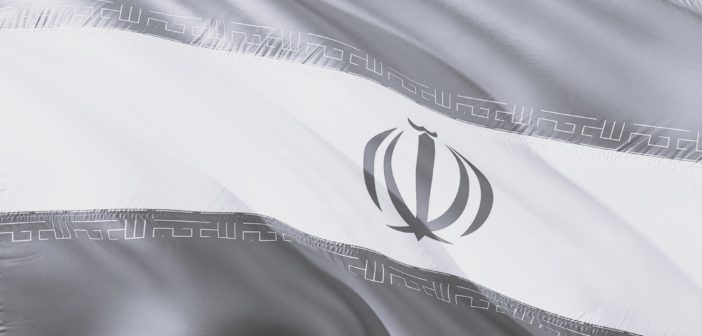By Irina Tsukerman
Far from being a standalone plot, Iran’s recent backing of an attempted mass terrorist attack in Greece follows the familiar pattern of past Iranian conspiracies. Iran recruits and deploys foreigners in hopes of avoiding detection. In the mid-2000s, Azerbaijan caught and arrested several Iran-backed spy and terrorist cells. In 2012, Iran masterminded a failed plot to assassinate the Israeli ambassador in Baku. Ten years later, Iran sent a group of Shia Pakistanis and an Azerbaijani to target Jewish sites and Israelis on Cyprus. Iranian indoctrination efforts aimed at Azerbaijanis have increased tensions between Tehran and its secular, Shia-majority neighbor. Indeed, several times over the past two and a half years, Iran has pushed the situation to the brink of war.
Where previously ties with Armenia and Qatar mainly focused on energy and transportation, Iran is increasingly showing its hand militarily. During the Second Karabakh War, when Azerbaijan liberated approximately 30% of its country that had been occupied by Armenia, Iran openly backed Armenia, bringing its troops for “training” near the borders of Azerbaijan’s Karabakh and East Zangezur regions. Since then, spy cells and terrorist groups became a new normal, forcing Azerbaijan to shut down the office of Ayatollah Khamenei’s representative, who was held to be responsible for spreading religious extremism and orchestrating hostile intelligence operations.
In the summer of 2022, a Shia cell with links to Iran attacked Azerbaijan’s embassy in London. Several months later, there was another shooting attack on the Baku Embassy in Tehran. The shooter used a semiautomatic weapon, which could not have happened without the regime’s approval. The next day the attacker conveniently appeared on the IRGC TV station claiming not to be a member of the IRGC. Meanwhile, Tehran allowed a major protest by Armenians and Iranians in support of the self-proclaimed and legally unrecognized separatist Armenian enclave “Artsakh” located in Karabakh.
During the month of March alone several spy and terrorist cells were taken down by the Azerbaijani authorities. All these events were accompanied by verbalized threats against Baku by Iranian officials, who accuse Azerbaijan of allowing “Zionists” to attack Iran from its territory and recycle discredited Assad-linked allegations that Baku allegedly imported ISIS jihadists to help in the Second Karabakh War. These statements have not disrupted the close Baku-Jerusalem defense relations; on the contrary, following the Tehran embassy shooting, Baku finally announced the opening of its embassy in Tel Aviv. On March 29, when the opening of the embassy took place, Iranian terrorists wounded an Azerbaijani Parliament member, in a clear effort to send a message. More recently, Iran also brought its forces to the borders with Azerbaijan’s Nakhchivan region, this time without the pretense of “training”.
Iran’s population consists of over 50% non-Persian ethnicities, including approximately 30 million ethnic Azerbaijanis. The regime is concerned about the potential for an ethnic uprising and has taken measures to suppress any potential independence movement. The prosperity of Azerbaijan and desire of Iranian Azerbaijanis to reconnect with their homeland is an embarrassment to the ayatollahs. Moreover, Azerbaijan is an economic competitor assisting Europe in addressing the energy crisis through increased oil and gas exports. Baku is also strengthening relations with the EU on a variety of issues, ranging from “smart cities” and the digital transformation of its economy to renewables, offering a promising alternative to Iran’s illiberal economic structure. Finally, Iran is threatened by Azerbaijan’s strong defense and political relations with Israel, first due to a possibility of strikes from Azerbaijan’s territory and second as an ideological matter. Israeli presence counters Iran’s antisemitic narratives and serves as an obstacle to its interests in projecting power in its immediate vicinity.
Iran is implementing a two-part strategy to undermine and weaken Azerbaijan. The first consists of internal meddling, which Baku regards as a violation of its national sovereignty. Recruiting spies and spreading extremism are meant to create resistance to the government and to extend Iran’s ideological reach, with the hope of eventually subverting Baku’s independence. Having Azerbaijanis involved in attempted terrorist attacks against Israeli targets is meant to sully Baku’s image in Europe and Israel. Iran has stepped up these efforts recently, with Baku rounding up approximately forty people in the days following the announcement of the thwarted attack in Greece and after the embassy opening day attack. Baku’s defense & foreign ministries forcefully refuted Iranian disinformation, but the war of words continues to escalate alongside active measures.
The other Iranian policy against Azerbaijan is its strengthening relations and military arrangements with Armenia. After Russia’s invasion of Ukraine, that relationship moved to the next level, with Iran joining Russia, Belarus, and Armenia in a drone tournament. This development took place despite the Armenian population becoming increasingly critical of the war in Ukraine and Russia’s overall influence, even eliciting a rare criticism from PM Pashinyan’s about Russia’s outsized military influence in Armenia.
While all eyes were on Iran’s publicly emerging agreements with the Kremlin to shore up the sales of drones and the joint missile manufacturing effort on Russia’s soil, Armenian and Serbian signs of interest in purchasing drones from Iran were unnoticed. In the past months, Serbia with Russian-backing escalated its confrontation with neighboring Bosnia, prompting Kosovo to accelerate its pursuit of EU entry.
Armenia, for its part, launched a series of border provocations with Azerbaijan. In September 2022, a new war was only narrowly averted after over a hundred soldiers were killed in border clashes. One of the key factors in Azerbaijan’s favor during the Second Karabakh War was the purchase of the Turkish Bayraktar drones, which Armenian forces were completely unprepared to counter. Iran is offering Armenia a way to overcome this disadvantage.
However, Iran’s military expansion does not end there. An agreement concluded just a few days ago allows Iran to transport new drones heading to Moscow for the use against Ukraine through Armenia. Simultaneously, Azerbaijan has uncovered plans to train and move 4,000 Iranian Revolutionary Guards Corps (IRGC) and Shia militia fighters to Karabakh’s borders by this coming summer. Until recently Iran recognized the South Caucasus as Russia’s sphere of influence and toed the line in direct intervention of this sort. However, Russia’s waning power has opened the doors for more direct military involvement in pursuit of its own, complimentary agenda, as well as triangulation and coordination of military efforts. This escalation threatens a new regional implosion, potentially bringing in more direct third-party involvement in the Azerbaijan-Armenia conflict, disrupting the ongoing diplomatic peace process, and escalating matters to the point of another war.
Reportedly, as part of the same drone transfer agreement, Iran has also received permission to train its own military and paramilitary groups in Armenia. If this is true, Iran could potentially provide Armenia with a new base of support where Russia has failed. Indeed, with Tehran having just changed its ambassadors to Baku and Yerevan, Armenia is set to play a greater role than ever in the Islamic Republic’s foreign policy.
While Turkey may not take kindly to Iran’s infringement on its own interests in the region, Erdogan has thus far stayed out of the Iran-Russia relations. Turkey even invited Putin, an indicted war criminal technically subject to arrest in scores of countries, to the opening of its nuclear reactor.
Escalating tensions in the South Caucasus benefits Russia by endangering energy security, potentially distracting the EU and NATO from Russia’s war in Ukraine, and by creating new paths to receive military assistance. The question remains – how long until Iran hosts its own military bases in Armenia and Serbia, creating a permanent entrenchment in Europe?






